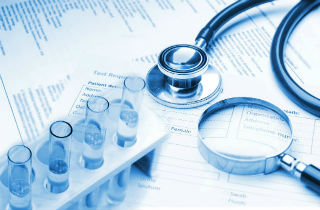Dual Diagnosis = Mental Illness + Addiction
Until recently, addiction and various mental health conditions were treated as entirely separate entities. Patients who fought with mental illness and chemical abuse were frequently denied therapy until they attained sobriety. Consequently, a lot of individuals never got the help they wanted and needed.
Now, when individuals get a Dual Diagnosis of a mental illness and drug addiction, patients can receive the proper care they need. Rehab centers are usually trained in treating co-occurring mental health ailments, and they are in a position to give personalized recovery solutions for Dual Diagnosis clients. So, why is this distinction and qualified care so important?
Integrated Therapy for Dual Diagnosis
Integrated therapy results in more successful dependence recovery, and it may also lower costs of treatment for individuals because they are treating both disorders at the same time. Individuals with protracted use of drugs or alcohol can cause co-occurring mental health ailments with their substance abuse dependences. Because of this, integrated therapy of both addiction and mental health is the most effective for those who have a Dual Diagnosis. If the dependence is treated but the underlying causes aren’t, relapse is very probable. In the same way, treating a mental illness without addressing the substance abuse which caused it is inefficient.
Why Do Mental Illness and Addiction Occur Simultaneously
How mental health disorders and addiction are connected? There are many issues that trigger an overlap between psychological health and substance dependence disorders. For example, individuals who experiment with drugs early in their life can hurt their still-developing brains, causing a chemical abuse or mental health condition later in life. Furthermore, environmental factors such as:
- Anxiety
- High pressure lifestyles
- Traumatic experiences
…each of these can trigger psychological disorders and / or abuse of drugs or alcohol.
Genetics also play a substantial part in both these disorders.
Main Diseases that Co-Occur with Addiction
1. Generalized Anxiety Disorder: Much like individuals with depression, people who suffer with
general anxiety illness may use drugs or alcohol to cope with their mental illness.
2. Bipolar Disorder: Approximately 50 percent of individuals diagnosed with bipolar disease abuse alcohol and drugs as a way to escape.
3. ADHD: Individuals who experience ADHD can also try to control their symptoms with alcohol and drugs. They are frequently prescribed stimulants by their doctors, which is habit-forming and may lead to non-prescription drug use if they stop using their prescription.
4. Borderline Personality Disorder: More than 2/3 of individuals diagnosed with Borderline Personality Disorder abuse drugs or alcohol.
5. Eating Disorders: Individuals with eating disorders also battle with insecurity and a feeling of inferiority, which could lead to alcohol or drug misuse.
6. Post-Traumatic Stress Disorder (PTSD): Whenever folks suffer from PTSD, their mind generates less endorphins, which means they are very likely to look for happiness with alcohol and drugs. The U.S. Department of Veteran Affairs accounts that almost 75 percent of veterans who undergo traumatic events misuse alcohol.
For somebody struggling with substance abuse to achieve true addiction recovery, inherent mental health problems like these have to be treated too. Otherwise, the person in recovery will soon encounter the exact same psychological, emotional, and behavioral patterns that resulted in the dependence to begin with.
Main Signs of a Dual Diagnosis
There’s some variation from the signs of a double diagnosis, because symptoms will change based upon the psychological illness and the seriousness of chemical abuse. However, typical symptoms include:
- Self-harming thoughts or behaviors
- Impulsive actions
- Poor personal hygiene
- Disengagement of social activities previously enjoyed
- Disillusioned thinking or diminished thought
- Issues managing finances
Obviously, the only real way to know for certain is to consult a specialist.
What Can You Do About It?
- Find a rehab center that can provide therapy to treat both illnesses.
- Locate a secure, structured center that offers individualized care. A center that specializes in your loved one’s addiction and co-occurring disease will probably be particularly powerful.
- For long-term recovery, inherent mental health problems cannot be ignored.









Related Posts